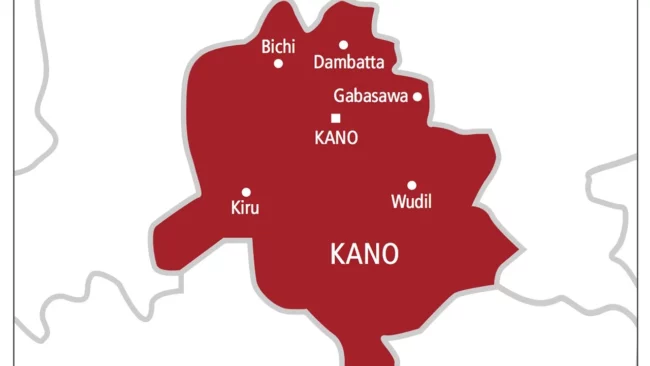The Kano state ministry of health has debunked a published story carried by one of the northern Nigeria-based newspaper which reported that a ‘strange disease’ has emerged and killed 45 people in Gundutse, Kura local government area of the state.
The ministry in its swift reaction to douse the tension and anxiety the story caused people, the ministry, in a press statement issued by its head of public relations unit, Ibrahim Abdullahi,a copy made available on Saturday to the press, said the story was twisted by the reporter to achieving his personal gains.
The release stated that the reporter was in the ministry on Tuesday 16/4/2024 to balance the story and was told that there had been no strange disease anywhere in the state so much that the State Disease Surveillance and Notification Officer (SDSNO) was phoned to explain the reality of the situation in the said area.
The SDSNO, the release continued, affirmed that it was severe malaria and typhoid that persisted in the area, and the report would be shared with the reporter, dishearteningly instead for him to wait a little bit he went ahead and published an unjustified and half-baked story that instilled fear among the people.
It was then stated in the release that in an email the Epidemiology unit of the ministry sent to the relevant MDAs and stakeholders on 8 April 2024 captioned ‘Response to Report on Life-Threatening Conditions among Children in Gainawa ‘A’ Gundutse’, stated that following the recent reports of life-threatening conditions among children in the community, a team has been raised, in collaboration with the Primary Health Care Centre (PHCC), Kura LGA had conducted a thorough investigation as a quick intervention to arrest the situation on time.
The unit said that the finding revealed alarming environmental health challenges exacerbating the health risks faced by the community where thirteen cases and five deaths were recorded, starting from March 2024.
It added that the delay in attending the nearby health facility by the people of the area aggravated the case, an unfortunate behaviour that leads to morbidity and mortality in many communities.
The report reads that “The symptoms of severe fever and headache among children in the community have been recurrent over the stated period. Clinical assessments have confirmed cases of malaria and typhoid which indicated the urgent need for intervention to prevent further spread and fatalities.
“The primary water source in the community, a borehole, is at risk of contaminating the sanitation practices, overcrowding and breeding grounds for mosquitoes. These factors contributed to the proliferation of disease vectors and the deterioration of public health.
“Actions taken during response include advocacy visit, active case search, sample collection for viral haemorrhagic fever and Lassa fever (all came out negative), provision of free drugs and consumables for case management and environmental chlorination, provision of adequate staff for early detection, response and referral to general hospital, surveillance intensification and risk communication and community engagement.
“We recommend for sample collection and analysis of water source, chlorination of water sources, environmental sanitation and hygiene activities and collaborative efforts amongst relevant MDAs are earnestly needed to mitigate the occurrence of the disease and break the chain of transmission.
“In light of the urgency of the situation, we urged the Ministries of Environment and Water Resources to provide immediate support and resources to address the environmental health challenges highlighted above.
“Swift intervention is crucial to safeguarding the wellbeing of the community members, particularly the vulnerable children who were at risk of life-threatening illnesses.”
ALSO READ THESE TOP STORIES FROM NIGERIAN TRIBUNE
GWR: Tinubu congratulates Tunde Onakoya on new world chess record
